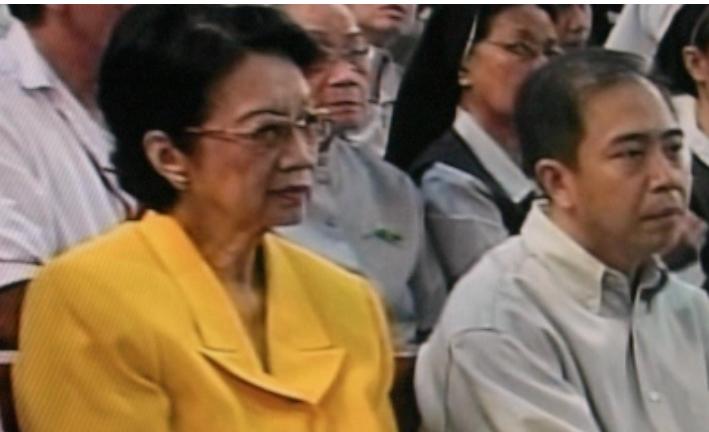Ousted chief justice Maria Lourdes Sereno on Wednesday, May 30, filed her motion for reconsideration to the Supreme Court (SC), urging her colleagues there to invalidate their decision of ousting her as the chief justice.
The SC voted 8-6 in finding Sereno “guilty of unlawfully holding and exercising the Office of the Chief Justice” on May 11.
According to Sereno, the decision was replete with “legal and factual errors.”
In her 205-page motion filed minutes before the deadline, Sereno said the ruling — which granted the quo warranto petition brought against her by Solicitor General Jose Calida — “illustrates vividly the dire and far-reaching consequences of a denial of due process.”
She asked the SC to reconsider its ruling that abruptly ended her unprecedented 18-year term.
“This is essentially a plea to the honorable court to do what is right and just,” Sereno said in the motion.
“Basic, fundamental and longstanding constitutional and legal rules and principles, and settled judicial precedents were ignored, set aside and reversed by the majority decision to achieve one end — the disqualification and ouster of the Chief Justice,” she argued.
The SC had no authority to remove her from office because under the Constitution, the chief justice can be ousted only through an impeachment process, Sereno insisted.
“The indisputable intent of the Constitution is that impeachable officers, save for the president and vice president, can be removed from office only by impeachment,” the motion read.
She reiterated that the on her statements of assets, liabilities and net worth (SALNs) cannot be the basis for determining her supposed lack of integrity and honesty.
“This Honorable Court erred in ruling that the Respondent ‘chronically failed to file her SALNs…’ The filing per se of a SALN neither proves nor negates a person’s integrity,” she argued.
Sereno said her failure to submit her statements of assets, liabilities and net worth (SALNs) should be considered “not ‘inherently immoral.’”
“And since this honorable court has essentially held that the nonfiling of a SALN is not ‘inherently immoral,’ this purported offense should not have negated the Chief Justice’s ‘integrity,’” she said.
Sereno also insisted that the quo warranto petition should not have been granted as it had already went beyond the one-year prescription period from appointment.
Moreover, she said that the decision was made “null and void” after six associate justices — namely Teresita Leonardo-de Castro, Diosdado Peralta, Lucas Bersamin, Samuel Martires and Francis Jardeleza, and Noel Tijam — refused to recuse themselves from the deliberations on Calida’s petition despite their bias against her.
“The justices’ testimonies and actuations in the hearings before the House committee on justice (and in the oral argument, in the case of Justice Martires) are clear and convincing evidence of actual bias,” Sereno said.
“The justices’ statements, and the emotional implications that are attached to the same, are evidence of actual bias. Actual bias is anchored not simply on their participation in the proceedings, but rather, on the substance of their statements,” she added.
A difficult process deliberately chosen by the Constitution could not be substituted with an expedient procedure, Sereno said.
The quo warranto could proceed simultaneously with impeachment as the petition was a remedy for challenging an appointed official’s qualifications while impeachment was for acts made after appointment, according to the majority decision.
Sereno was accused of, among other charges, failing to declare her real wealth, buying a luxury car with government funds and making questionable decisions without consulting her fellow magistrates in the impeachment complaint.







